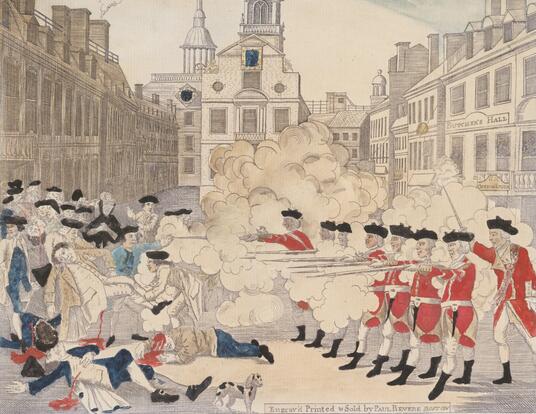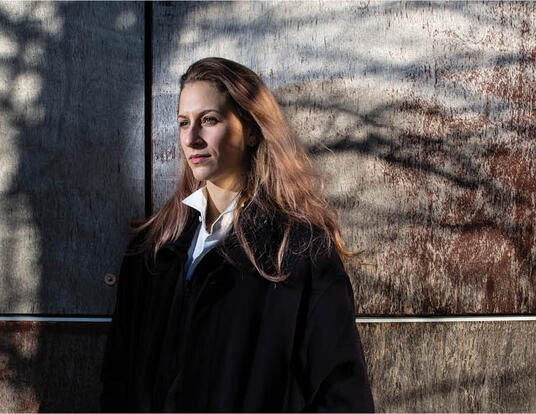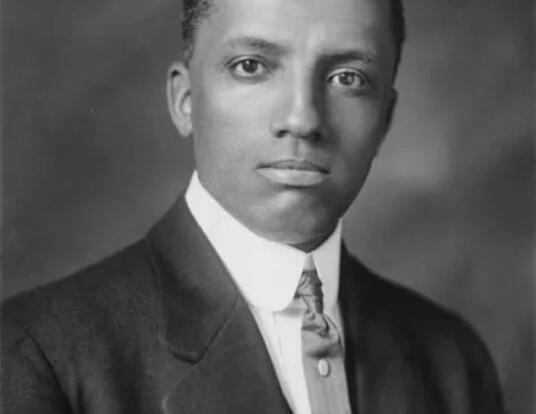2017 Centennial Medalist Citations
The following citations were read by Kathleen Coleman, James Loeb Professor of the Classics, during the presentation of the Centennial Medals by GSAS Dean Xiao-Li Meng, Whipple V. N. Jones Professor of Statistics, on May 24, 2017.
Russell Mittermeier, PhD ’77
Our planet is facing an overwhelming crisis of mass extinction. With so much at stake, and with so many different species and habitats in jeopardy, where do we even begin? Russell Mittermeier has never been afraid to take up this challenge. His work on the front lines of conservation biology has made an extraordinary difference in preserving some of the most vulnerable species and geographical areas on earth.
Mittermeier earned his PhD in biological anthropology at Harvard in 1977. His career has included leadership positions at the World Wildlife Fund, the International Union for Conservation of Nature, and Conservation International, where he was president from 1989 to 2014 and now serves as executive vice chair. He also holds appointments at Stony Brook University and Harvard’s Museum of Comparative Zoology. TIME magazine has hailed him as a “Hero for the Planet,” an apt title for such an indefatigable defender of the world’s endangered species.
Richard Wrangham, Ruth B. Moore Professor of Biological Anthropology and a specialist in primate ecology, nutrition, and social behavior, says of Mittermeier: “Russ has been the leader in conservation primatology, almost creating the field himself. He has almost certainly seen more species of primates than anyone on the planet.”
The identification of new species is critically important to conservation efforts; without it, we might, for example, encounter three species of monkey living in three different areas and mistakenly assume that they are all the same, failing to anticipate the loss of a whole species, should one of those three habitats be destroyed. Over the course of his career, Mittermeier has discovered seven new species of monkey—along with four lemurs and three turtles—and has had eight species named in his honor.
“Russ has been a pioneer in global conservation, as a leader of Conservation International and through his extraordinary work around the world in real-life conservation projects; he’s at the forefront of our current effort to save global biodiversity,” says Edward Wilson, Pellegrino University Professor, Emeritus, in the Museum of Comparative Zoology.
Mittermeier has been especially instrumental in explaining the importance of “biodiversity hotspots”—places that are home to unusually high numbers of different species of plants and animals. He has helped to build widespread recognition that global conservation strategy should give the very highest priority to protecting these unique locations. Without understanding biodiversity and biodiversity hotspots, it is impossible to make properly informed decisions about where to focus conservation resources.
Mittermeier’s career encompasses activities and areas of specialization that are usually beyond the scope of a single individual. Most leaders of major organizations like Conservation International are not simultaneously prolific field researchers. “What makes Russ stand out as a conservationist is that he does the basic research into the biology of these organisms that is often necessary to conserve them,” says James Hanken, Alexander Agassiz Professor of Zoology and Director of the Museum of Comparative Zoology. In Hanken’s estimation, Mittermeier’s basic research has provided a “more reliable footing” for important assessments and decisions in the area of nature conservation.
Furthermore, while Mittermeier is well known for his work as a primatologist, he is also a herpetologist, specializing in the study of reptiles and amphibians: an uncommon academic pairing. In fact, according to Hanken, who is himself an amphibian specialist, Mittermeier is a “herpetologist at heart.” In the early 2000s, the pair of them worked together on the Global Amphibian Assessment, a monumental effort to document the conservation status of all known species of amphibians. Mittermeier’s peers admire his ability to juggle multiple areas of expertise, from primates to turtles, from boardrooms to the biosphere.
For Mittermeier, protecting our planet’s biodiversity is never just a job. What makes him an effective leader, in the view of Mark Leighton, associate director and senior research advisor in the Sustainability Program at the Harvard Extension School, is his genuine passion and belief in the importance of this endeavor. “When Russ talks about biodiversity,” says Leighton, “it always shines through that he sees this as a moral and ethical issue. And not only that: species diversity, and seeing this diversity in the wild, truly excites him, and that excitement gets passed along when you talk to him. For Russ, to celebrate species diversity, and to imagine how important it is for future generations to be able to experience it as well, is a center of human wonder.”
Russell Mittermeier, for your lifelong dedication to protecting the planet’s endangered species, and for your tireless commitment to field work and building partnerships with people around the world to promote biodiversity, we are proud to award you the 2017 Centennial Medal.
Sarah Morris, PhD ’81
Archaeologists devote their lives to uncovering the material evidence of history, strengthening the links between us and the past—and no one is more skillful at building these connections than Sarah Morris. As an excavator, she has brought to light countless ancient artifacts at sites throughout the Mediterranean. As a classicist, she has produced scholarship that encompasses an impressive range of historical periods. And as a colleague, she is committed to bridging academic boundaries and bringing people into conversation with one another.
Morris earned her PhD in Classics at Harvard in 1981 and taught at Yale before joining the faculty of the University of California at Los Angeles, where she is now Steinmetz Professor of Classical Archaeology and Material Culture. At UCLA, Morris has served as chair of the Department of Classics and of an interdepartmental PhD program at the Cotsen Institute of Archaeology, leadership positions that she has deftly balanced alongside her dedication to her scholarship and her students. She has demonstrated particular generosity and support for graduate students—and not only her graduate students, but all graduate students—who are getting their start in the field.
“Sarah has an infectious enthusiasm,” says Susanne Ebbinghaus, George M.A. Hanfmann Curator of Ancient Art at the Harvard Art Museums. “You always feel invigorated after a conversation with her, and as a colleague she’s very generous. She is enormously supportive, and she’s always full of new ideas.”
In 1993, Morris won the James R. Wiseman Book Award from the Archaeological Institute of America for her book, Daidalos and the Origins of Greek Art, which offered a new, more comprehensive framework for looking at a major topic: the relationship between ancient Greece and the Near East. In it, she examines a period of dramatic transition for Greece, from the late Bronze Age around 1100 BC, which saw the collapse of Mycenaean civilization and the disappearance of writing, to the rise of the Classical period, hundreds of years later, in the fifth and fourth centuries BC. How did Near Eastern civilizations shape the culture emerging in Greece during this tumultuous time? To answer this question, Morris employed a sophisticated theoretical approach, drawing not only upon archaeology, but also linguistics and philology.
“What Sarah did in her book was to look at all of the evidence as a whole, instead of linguists just looking at the language and pottery specialists just looking at the pottery,” says Jane Carter, PhD ’84, who is associate professor emerita in Classical studies at Tulane University. “Sarah brought it all together, to assess the huge amount of decisive influence that contact with the eastern Mediterranean had for Greece.”
Morris and Carter began their careers in the same graduate cohort in classical archaeology, and they went on to serve as co-editors of The Ages of Homer, a collection of essays published in 1995 in honor of their advisor, Emily Vermeule. They have also excavated together on many occasions. “Some people can become kind of grouchy in the field,” Carter says. “The living conditions are not always very easy, and you have to get up extremely early, and some people find it kind of unpleasant and complain. But that’s certainly not true of Sarah. She’s always a lot of fun in the field, and she’s a great person to have as a project leader, because she has such a great sense of humor and can always keep things running along cheerfully.”
One of the things that makes Morris such an effective leader is her remarkable facility with languages: she has mastered not only the ancient languages associated with her areas of study, but many modern languages throughout Europe and the Mediterranean. Her linguistic fluency strengthens her scholarship and helps to build a stronger sense of community wherever she goes.
Gregory Nagy, Francis Jones Professor of Classical Greek Literature and Professor of Comparative Literature, who has been a close colleague and friend of Morris since the 1970s, agrees that drawing people together is one of her singular talents. “Sarah is a brilliant communicator, sharing her deep knowledge of archaeology with experts and non-experts alike,” Nagy says. “I admire her work passionately.”
Sarah Morris, for your remarkable ability to broaden our horizons, and for your commitment to sparking new conversations and connections across disciplines, geographic areas, and historical periods to help us better understand the origins of Western civilization, we are proud to award you the 2017 Centennial Medal.
Thomas Pettigrew, PhD ’56
Tom Pettigrew has devoted his life to confronting some of the most divisive problems facing human society: racism, discrimination, and prejudice. Raised in the South, he earned his PhD in social psychology at Harvard, where he was a student of Gordon W. Allport, a pioneer in the psychology of prejudice and personality. Pettigrew went on to lay the empirical and theoretical groundwork for ideas that are now fundamental to the way we think about prejudice in the United States and around the world.
After completing his PhD in 1956, Pettigrew taught for a year at the University of North Carolina before returning to Harvard to serve as a professor of social psychology and sociology for more than two decades. In 1980, he joined the faculty of the University of California, Santa Cruz, where he is now a research professor of social psychology, emeritus. He has also taught at the University of Amsterdam; his work is often comparative in nature and has involved research not only in North America, but also in Europe, Australia, and South Africa.
Lawrence Bobo, W.E.B. Du Bois Professor of the Social Sciences, has always held Pettigrew in the highest regard. He says that throughout his entire career, from his undergraduate days onwards, Pettigrew has been in many ways the “leading thinker about the social psychology of race and prejudice.” Bobo says: “The style of work that Tom has exemplified is a deep commitment to careful, systematic, empirical research that is at the same time theoretically grounded. He doesn’t just engage a pet hypothesis; he doesn’t just come up with a preferred idea. He’s always wrestling with complexities that have been validated by the highest quality research.”
Pettigrew’s work consistently addresses the most pressing policy questions of the day. In 1964, the Harvard Crimson described his course on racial prejudice as “the academic stronghold of the Harvard civil rights movement.” In the 1960s and 1970s, he testified before Congress and gave expert testimony in several court cases on public school desegregation.
“Tom never loses sight of a commitment to social justice, a commitment to shedding light on how we can move toward a world that is free from the damaging effects to individuals, to communities, to whole nations, that result from prejudice and racism,” says Bobo. “His work is always tethered to speaking to those large challenges, and to the ways in which social science can inform efforts to make the world better.”
In recent years, Pettigrew has focused on contact theory, the idea that increased contact between racial groups can build positive intergroup relations. In 2003, he led a meta-analysis of more than 500 previous studies on contact theory, in collaboration with one of his former students, Linda Tropp, who is now a professor of social psychology at the University of Massachusetts at Amherst. This landmark project revealed that contact with people who are different from others—whether in terms of race, age, disability, or sexual orientation—has been shown to decrease prejudice in a remarkable 94 percent of studies, thereby confirming the value of policies that encourage diversity. “Through his great intellect, research rigor, and unwavering commitment to the social justice implications of his work, Tom has served as an exceptional role model for me and many other younger generations of scholars,” says Tropp. “He embodies the best of who we aspire to be as academics.”
Pettigrew’s commitment to a comprehensive, contextual approach to social psychology was shared by one of his closest colleagues on the Harvard faculty, Herbert Kelman, Richard Clarke Cabot Professor of Social Ethics, Emeritus, who specializes in the study of international conflict. “I don’t remember a single time I disagreed with Tom,” says Kelman. “He developed a name for the kind of social psychology we stood for that I adopted happily: contextual social psychology. This hit me right away as being the right term for the kind of social psychology that both he and I were practicing.”
Pettigrew has received lifetime achievement awards and accolades from numerous institutions, and just last year he was named the winner of the Cox-Johnson-Frazier Award, the highest honor conferred by the American Sociological Association for contributions to the study of American race relations—a fitting tribute to a career that encompasses more than 500 publications.
Jim Sidanius, John Lindsley Professor of Psychology in Memory of William James and Professor of African and African American Studies, admires Pettigrew’s tremendous motivation and impact. “Tom is one of the most influential modern living scientists dealing with the work of prejudice and discrimination,” says Sidanius. “He’s one of the giants.”
Thomas Pettigrew, for your leadership in the study of racial prejudice, and for your lifelong commitment to solving widespread, real-world problems and advancing social justice in America and abroad, we are proud to award you the 2017 Centennial Medal.
Richard Sennett, PhD ’69
Richard Sennett is a scholar of tremendous range and wide interests. His academic appointments span multiple disciplines and multiple continents. He is a sociologist and historian, and also a novelist; a musician who trained at Juilliard, and a leader who has served as an advisor to UNESCO and as president of the American Council on Work. The breadth of his professional and intellectual career perhaps explains why his scholarship has so powerfully shaped our understanding of some of the most fundamental questions of modern life: what it means to live in a city, and what it means to work.
Sennett is University Professor of the Humanities at New York University, where he founded The New York Institute for the Humanities, and Professor Emeritus of Sociology at the London School of Economics and Political Science, where he has led the Cities Programme, an innovative center for graduate teaching and research on urban issues. He also holds an appointment as a Distinguished Visiting Scholar at the University of Cambridge and has received numerous honorary degrees, awards, and distinctions.
When Sennett earned his PhD in the history of American civilization at Harvard in 1969, a revolutionary new form of historical writing was just beginning to take shape: the new social history, a “history from the bottom up” that shifted away from telling the stories of history’s traditional protagonists—political figures, military heroes, and other elites—to focus instead on the lives of ordinary people. While other social historians might get caught up in documenting the mundane details of everyday life, Sennett has displayed a remarkable ability to see the big picture and ask the big questions that have brought deep meaning to this new mode of history.
According to Lizabeth Cohen, Dean of the Radcliffe Institute for Advanced Study and Howard Mumford Jones Professor of American Studies, Sennett’s ability to broaden the scope of the ideas that social history could address has opened vast new possibilities for other scholars. “His books are maps for historians to fill in,” says Cohen. “Richard understands the big changes happening over historical time—he sees the vast terrain—and then he asks the big questions that set the agenda for historians.”
Sennett’s prolific and wide-ranging bibliography includes The Hidden Injuries of Class, co-authored with Jonathan Cobb, which gives voice to the emotional pain of undervalued blue-collar workers in American society; The Corrosion of Character, a groundbreaking study of the world of new capitalism, where there are more incentives for people to reinvent themselves rapidly than to maintain a steady sense of personal character; and The Fall of Public Man, which examines a pronounced change in the nature of public life and political involvement over the course of two centuries of Western history—a text that Homi Bhabha, Anne F. Rothenberg Professor of the Humanities and Director of the Mahindra Humanities Center, identifies as an important precursor to the growth of cultural studies.
As president of the American Council on Work in the late 1990s and early 2000s, Sennett led a forum, sponsored by the Rockefeller Foundation, on the changing pattern of American labor. Looking back on that forum, Bhabha says of Sennett, “I remember with great fondness and admiration his ability to bring together thinkers, artists, and scholars from a range of perspectives with the purpose of creating collective conversations on some of the most important cultural issues of our times.” Just last year, Sennett and Bhabha collaborated on a United Nations project, for which Sennett once again convened a range of scholars and activists involved with the major issues of urban transformation, assembling a diversity of perspectives that reflects his own tremendous capacity for expansive thought.
Werner Sollors, Henry B. and Anne M. Cabot Research Professor of English Literature and Professor of African and African American Studies, admires Sennett for his unfailing ability to generate new agendas and projects. “Richard is extraordinarily attuned to aesthetics and art, as well as deeply engaged with social inequality and the changing world of global labor relations,” Sollors remarks. “Many of his peers would be proud to have worked in just one of the many areas Richard has taken on.”
Richard Sennett, for your pathbreaking work on the sociology of cities, communities, and cultures, and for your willingness to ask the big questions that expand our conversations about the social bonds and systems that shape our personal lives, we are proud to award you the 2017 Centennial Medal.
Get the Latest Updates
Join Our Newsletter
Subscribe to Colloquy Podcast
Simplecast





